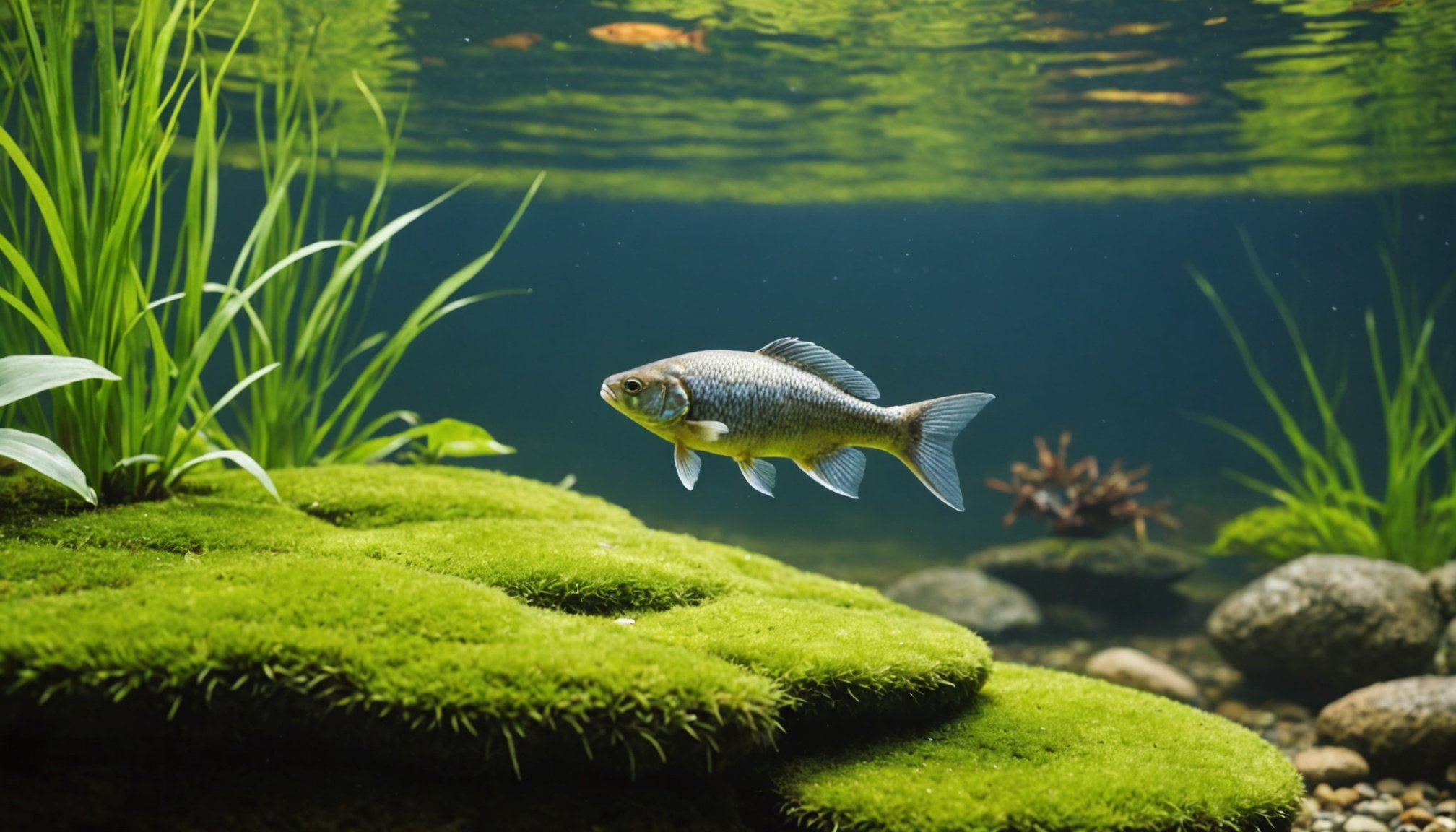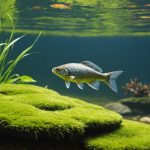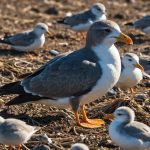Introduction to Fish Varieties in UK Ponds
Understanding the significance of selecting the right fish species is crucial for maintaining a well-balanced pond ecosystem. By choosing suitable fish for UK ponds, there’s a direct impact on pond ecology, promoting both health and biodiversity. Fish play a vital role in the ecosystem, significantly affecting the community dynamics and overall diversity.
When selecting fish for your pond, it’s essential to align your choices with local environmental conditions. This ensures that the fish not only survive but thrive, thus supporting the entire ecosystem. Within the UK, native species are often preferred due to their adaptability to local climates and ecological compatibility, minimizing potential disruptions to the existing ecosystem.
In the same genre : Exploring uk wildlife: interactive educational experiences for schools
The impact of fish on pond health and biodiversity is multifaceted. Fish can contribute to controlling pest populations, distributing nutrients, and enhancing water quality through their natural behaviours. In turn, this improves not only the ecological balance but also the aesthetic appeal and recreational potential of the pond.
To create a thriving fish community, consider factors such as water temperature, pond size, and vegetation when selecting suitable species. Aligning fish choices with these environmental conditions helps foster a vibrant and sustainable pond ecosystem.
Also read : Guardians of the sea: the uk”s innovative efforts to safeguard seabirds from plastic pollution
Common Fish Species for UK Ponds
Understanding the various common UK pond fish enriches pond ecosystems by ensuring compatibility and ecological balance. Species such as carp, goldfish, and roach not only thrive in UK climates but also play integral roles in pond ecology.
Carp
Carp are known for their adaptability to different freshwater environments. They contribute significantly to the pond ecosystem by breaking down plant matter, enhancing nutrient distribution, and providing food for other species. When managing carp, consider their large size and extensive growth patterns, which can affect pond health if not managed properly.
Goldfish
Goldfish are another popular species for UK ponds. Known for their vibrant colours and relatively small size, goldfish flourish in environments with moderate water temperatures and ample vegetation. They coexist peacefully with other species, making them a versatile choice for enhancing ecosystem diversity. Maintaining a balanced goldfish population involves monitoring water quality and providing appropriate food.
Roach
Roach are small, silver freshwater fish known for their ability to adapt to various habitats. These species contribute to pond biodiversity by controlling insect populations and providing food for larger fish and birds. Sourcing roach from reputable breeders ensures that they are healthy and environmentally sustainable, thereby supporting the overall species overview in the pond.
Rare and Unique Fish Options for Diverse Ecosystems
Incorporating rare fish species into your pond can significantly enhance ecosystem diversity. These unique pond fish not only add a distinctive charm but also contribute to biodiversity enhancement, promoting a balanced and thriving environment.
Tench
Tench, commonly known as “doctor fish,” require specific habitat conditions, including clean substrates and ample vegetation. Their non-aggressive nature supports a harmonious coexistence with existing species. Tench are beneficial for pond ecosystems due to their role in controlling algal growth and serving as a natural aesthetic asset. When introducing tench, ensure water conditions are optimal, and monitor population dynamics to prevent overcrowding.
Rainbow Trout
Rainbow trout thrive in cooler, oxygen-rich waters. These fish enhance pond ecosystem dynamics by preying on smaller fish and insects, naturally controlling populations and improving biodiversity. To sustainably stock rainbow trout, maintain water quality and temperature controls, especially during warmer months, to support their growth and survival.
Sticklebacks
Sticklebacks are small but impactful in terms of controlling insect populations within ponds. Their adaptability and characteristic behaviours contribute to pest regulation, thus maintaining ecological balance. To manage stickleback populations effectively, ensure their habitats are stable with hiding spots such as submerged plants and stones, promoting natural behaviours and breeding.
Ecological Benefits of Diverse Fish Populations
Enhancing biodiversity in ponds offers various ecological benefits, advancing both pond health and aesthetic enjoyment. A diverse range of fish species contributes significantly to maintaining ecological balance. For instance, certain fish naturally manage pest populations by feeding on insects, ensuring a healthier ecosystem without the use of chemicals.
When selecting species, the goal is to establish a balance where fish naturally regulate each other’s populations. This creates a self-sustaining environment, enhancing the overall ecological impact. Diverse fish populations not only support ecosystem functions but also boost the pond’s visual charm, potentially offering more recreational opportunities, such as fishing or wildlife observation.
Pond health often improves with increased biodiversity. Fish contribute to nutrient cycling by consuming organic matter and excreting waste, which becomes a nutrient source for aquatic plants. This nutrient exchange promotes a dynamic and nutritious environment, fostering further biodiversity growth. Recognising these benefits, pond owners should consider the fish’s compatibility and their role in the ecosystem when stocking ponds.
Introducing species aligned with the pond’s natural habitat and climate ensures a flourishing fish community that is both ecologically and aesthetically pleasing, contributing positively to the local environment.
Tips for Effective Pond Management
Managing a pond involves more than just choosing the right fish. Effective pond management ensures a balanced ecosystem and promotes overall pond health. Here are some essential pond management tips to consider:
Balancing Fish Stocking Levels
Maintaining the correct fish stocking levels is crucial. Overstocking can lead to diminished resources and deteriorating water quality. Recommended ratios vary depending on the species but generally, it’s wise to start with fewer fish, allowing room for growth. Signs of overpopulation include murky water, increased competition for food, and noticeable stress among the fish. If overpopulation occurs, strategies like relocating some fish to other ponds or increasing pond size can alleviate pressure.
Water Quality and Habitat Maintenance
Ensuring optimal water quality is essential for fish health and ecosystem balance. Regularly test parameters such as pH, ammonia, and nitrite levels. Introduce aquatic plants to improve oxygen levels and provide hiding spots. Regular cleaning and filtration system maintenance are best practices for sustaining a healthy pond environment.
Seasonal Considerations for Pond Management
Ponds experience seasonal changes affecting fish behaviour. In colder months, reduce feeding as fish metabolism slows. Insulate ponds to prevent freezing and ensure oxygenation. Conversely, in warmer months, monitor water temperature and quality closely, adjusting care as needed to protect the pond ecosystem.
Sourcing Fish for Your Pond
Finding the right fish for your pond is a critical step towards ensuring a well-balanced and sustainable ecosystem. Ethical fish sourcing not only benefits the environment but also strengthens local businesses. Opting for ethically sourced fish means choosing suppliers that follow sustainable practices, safeguarding natural habitats and populations.
When choosing between wild-caught and farmed fish, consider the specific needs of your pond ecosystem. Wild-caught fish usually adapt better to natural environments, offering higher genetic diversity. However, they might carry diseases or invasive traits that could disrupt the existing ecology. Conversely, farmed fish are often healthier and bred for compatibility with pond conditions, though they may lack the adaptability of their wild counterparts.
Local suppliers and nurseries are invaluable resources. They provide insights into which species thrive under regional conditions and offer healthier stock due to proximity, minimizing transport stress. Seek advice from experienced nurseries on the most suitable species for your individual pond.
Remember, sourcing fish responsibly involves evaluating potential environmental impacts. Prioritising local and sustainable options not only supports local economies but also enhances your pond’s ecological diversity and health.











